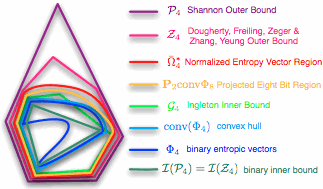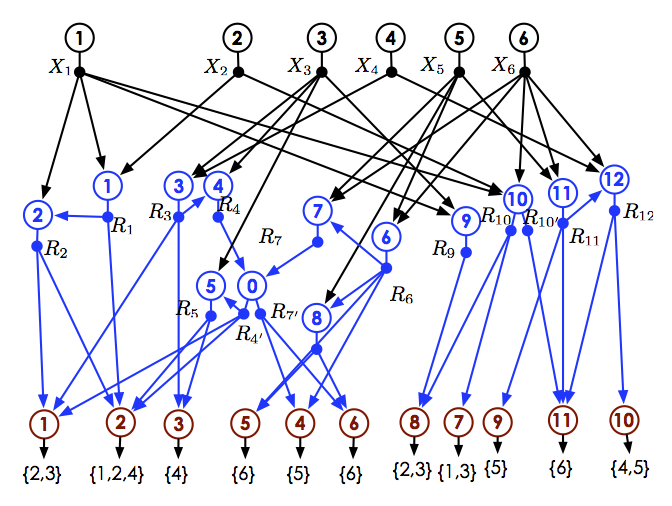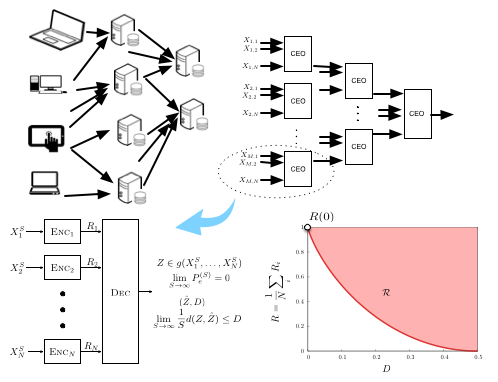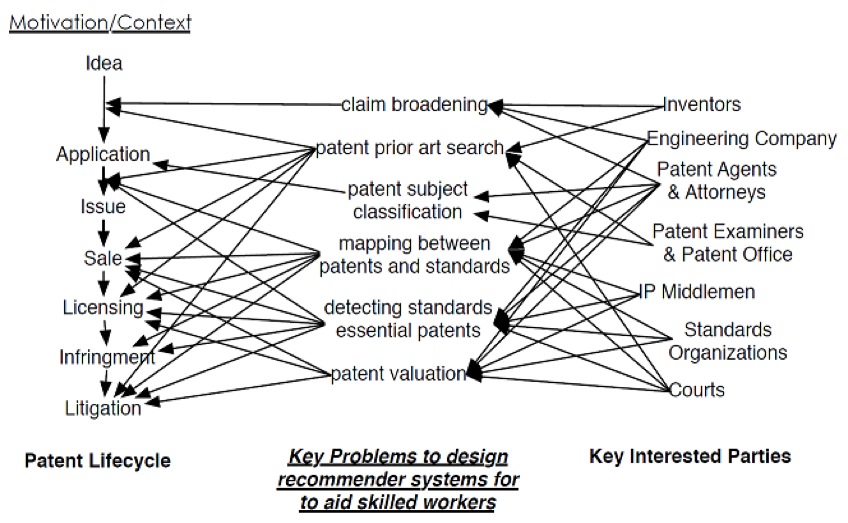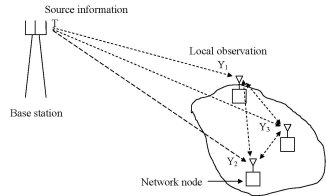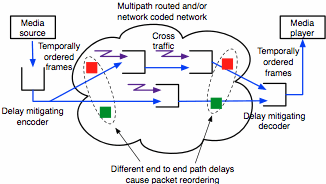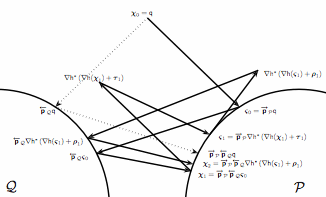Research Projects
Bounding the Region of Entropic Vectors
While the region of entropic vectors in two and three variables is characterized by Shannon's inequalities, non-Shannon inequalities are necessary for 4 random variables. We study the relationship between various bounds on the set of normalized entropic vectors in 4 random variables, matroid based inner bounds and Information Geometric properties of entropic vectors. Read more...
Personnel: Dr. John M. Walsh, Congduan Li, Yunshu Liu, Jayant Apte, A. Erick Trofimoff
Rate Region for Network Coding and Distributed Storage
Network Coding (NC) outperforms traditional routing in many cases by allowing nodes in networks to transfer and store a mix of incoming information. In this project, we study limits on the performance of network coding via rate regions in a very general setting of multi-source multi-sink multicast network coding over directed acyclic (hyper)graphs (DAGs). We use unconventional means such as computer assisted proofs to solve these problems. We also study the hierarchy among networks so that large networks, which can be obtained by some combination and/or embedding operations on easily solvable small networks, can be solved as well. This work has applications to the design of streaming protocols and large distributed big data storage systems. Read more...
Personnel: Dr. John M. Walsh, Congduan Li, Jayant Apte, A. Erick Trofimoff.
Collaborators: Dr. Steven Weber (Drexel University)
Interactive and Distributed Function Computation
For distributed function computation problems, we investigate the fundamental limits as well as provide practical and simple coding strategies in both the Shannon lossless and lossy manner. This work synthesizes the tools of multi-terminal information theory, interactive communication, and Blahut-Arimoto algorithms as well as distributed quantization design. This work finds applications in the design of resource controllers and methods for efficiently learning from massive datasets. Read more...
Personnel: Dr. John M. Walsh, Jie Ren, Bradford Boyle, Gwanmo Ku, Solmaz Torabi
Collaborators: Dr. Steven Weber (Drexel University), Dr. Len Cimini, Dr. Javier Garcia-Frias (University of Delaware)
Machine Learning Based Recommender System for Patent processing
The lifecycle of a patent involves a diverse collection of players and interests. Each entity involved in this lifecycle has different goals and different means to achieve them. These different goals require many manhours to either perform or perfect the process. This work develops recommender systems based on machine learning that interact with human users to semi-automate several steps in the processing of patents. Read more...
Personnel: Dr. John M. Walsh, Mengke Hu, David A. Cinciruk
Collaborative Estimation Over Networks
Algorithms for collaborative estimation must deal with complexity and communication limitations. This work uses fundamental tools from machine learning, information theory, and practical source code design to provide high performance estimation algorithms with low complexity and communication. Read more...
Personnel: Sivagnanasundaram Ramanan, Dr. John M. Walsh
Collaborators: Dr. Phillip A. Regalia (Catholic University of America)
Delay Mitigating Codes for Multipath Routed and/or Network Coded Networks
While the use of multiple paths between a source and destination in a network opens up the possibility for more rapid and lower delay data transmission, the possibility of packet reordering becomes likely due to the independent queues through which packets sent on different paths encounter. This project constructs delay mitigating codes to encode the packets flowing along the paths in order to provide a connection that can deal with reordering and trade rate for delay. Read more...
Personnel: Dr. John M. Walsh, Ciira wa Maina
Collaborators: Dr. Steven Weber (Drexel University)
Approximate Bayesian Robust Speech Processing
There is an inherent relationship between cleaning noise and interference corrupted speech and identifying the speaker. Corrupted speech can be better cleaned and enhanced if the speaker is known, while the identity of the speaker can be better identified if the speech is clean. We apply various techniques from approximate Bayesian inference to solve these problems jointly in an iterative manner.Read more...
Personnel: Ciira wa Maina, Dr. John M. Walsh
Collaborators: Dr. Youngmoo Kim (Drexel University)
Performance and Convergence of Expectation Propagation
Although some special cases of expectation propagation (EP) family of algorithms have been shown to converge to optimal values, the performance and convergence of many important instances of this family are not well understood. In this research we analyze the performance and convergence of the EP family of algorithms. Read more...
Personnel: Dr. John M. Walsh
Collaborators: Dr. Phillip A. Regalia (Catholic University of America)

